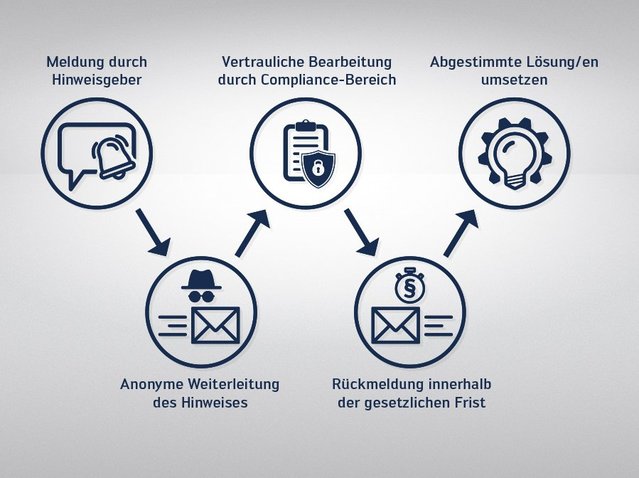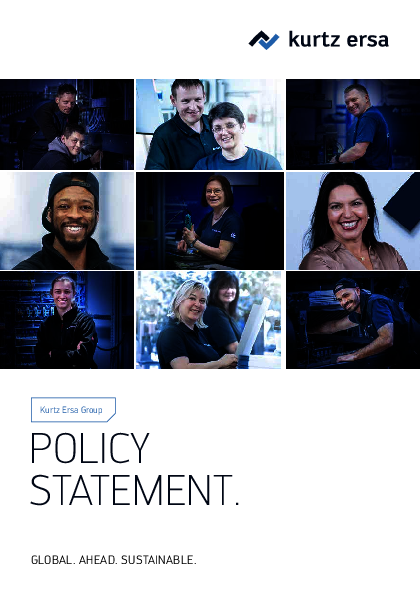Kurtz Ersa has been in existence for more than 245 years. The basis and fundamental prerequisite for this long company tradition, in addition to risk-conscious and prudent corporate management, is the lasting trust of our employees and business partners in the reliability of our company. In order to maintain this trust in the future, compliance with the applicable rules, legal provisions and internal company guidelines is essential.
Irrespective of this, violations can have serious financial or criminal consequences. Kurtz Ersa has implemented a Group-wide compliance management system (CMS) to protect the company and its employees from these consequences.
The increasing speed of change in the regulatory environment makes active management of the associated risks essential. In setting up the CMS and managing compliance risks, we are guided by the standards of ISO 37301 Compliance Management. The findings from whistleblower and complaint management are also incorporated into the continuous review and improvement of our CMS.
Compliance building blocks
Complaints management and whistleblower system
Complaints management and whistleblower system
Kurtz Ersa offers employees, business partners (including their employees) and external third parties the option of reporting possible violations of compliance requirements and the Supply Chain Due Diligence Act.
Our complaints management and whistleblower system help to limit the consequences of such violations and prevent similar misconduct in the future. The electronic platform can be used to report information on potential violations of legal regulations and internal rules.
This applies, for example, to suspected:
- Disregard for human rights and social standards (e.g. child or forced labor, discrimination)
- Environmental and occupational health and safety violations (e.g. in connection with conflict minerals)
- Corruption (bribery and corruptibility, acceptance and granting of advantages)
- Fraud
- Embezzlement, misappropriation, theft
- Money laundering
- Data protection or information security breaches
- Violations of competition law
We use the software solution from Osapiens, which enables two ways of submitting complaints and reports:
- 1. Confidential report: Here you create a mailbox and can log in to access all the information you have submitted, retrieve information for further processing and communicate with us. If you use a pseudonym and do not enter any data that could be used to identify you, your identity will remain completely confidential.
- 2. Anonymous report: After submitting the notification, you will receive a code with which you can access your notification. Here, too, you can enter the code to receive feedback for further processing and optionally contact us. If you wish to remain anonymous, please note the security information on the complaints page.
Regardless of the message selected, we will always treat it confidentially. Whistleblowers are generally protected by law, provided that no deliberately false report has been made.
Material Compliance
Material Compliance
There are comprehensive and ever-increasing requirements regarding the materials used in products. These include ensuring that all components and materials comply with the specified standards and regulations and aim to minimize the use of hazardous or environmentally harmful substances.
International regulations that deal with material compliance include:
- the REACH regulation of the European Union,
- the RoHS Directive and comparable regulations such as
- the TSCA in the United States and
- China-RoHS in China.
To protect our customers and employees, it goes without saying that we ensure that our supply chains comply with all relevant material compliance requirements. This includes recording and verifying material data, training employees on compliance with these regulations, and implementing internal control mechanisms (see also → Procurement)
In order to support our customers in fulfilling their obligations, e.g. with regard to occupational safety or sustainability reporting, we intend to provide information in the future.




